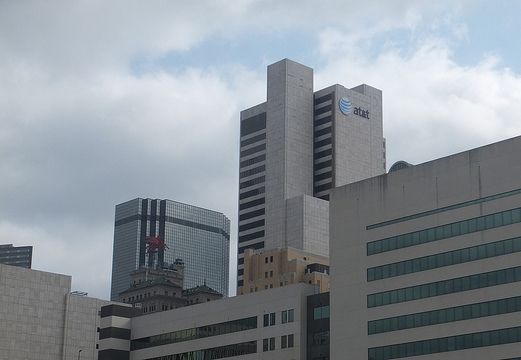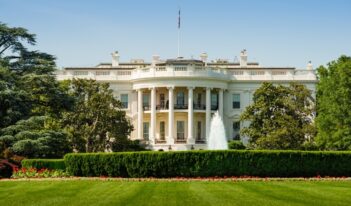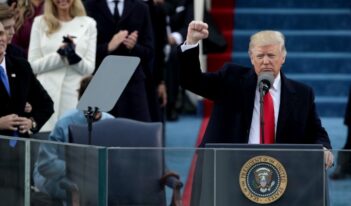
Despite optimism about the future for the $85.4 billion deal, a new report claims Trump remains opposed to the merger.
As big banks make historic stock market gains and the Trump transition team continues to select Goldman Sachs alumni and representatives to serve in the new Administration, it appears the financial sector might escape the scathing campaign rhetoric echoed last year. Yet AT&T and Time Warner—who announced an $85.4 billion merger shortly before the November election— are still receiving mixed signals on whether President-elect Donald Trump is willing to put his money where his campaign mouth was.
Before President-elect Trump won the election, the AT&T-Time Warner merger endured heated criticism and anti-merger rhetoric. No stranger to publicly criticizing large companies, Trump bashed the mega-merger weeks before the election because of Time Warner’s ownership of CNN, stating that “AT&T is buying Time Warner, and thus CNN—a deal we will not approve in my Administration because it’s too much concentration of power in the hands of too few.”
Until recently, it appeared that Trump’s campaign rhetoric about the merger may have been for show. Several selections for positions in the incoming Trump Administration seemed to signal a positive outcome for the merger—reportedly causing some investors on Wall Street to speculate chances of approval at 70 percent. Now, however, Trump has reportedly reaffirmed his opposition to the deal, shaking up the share prices for both companies.
AT&T and Time Warner received a glimmer of hope when Trump initially announced the names of his transition team and future Administration. First, Trump selected two members to oversee the Federal Communication Commission’s (FCC) transition—Dr. Mark Jamison and Jeffrey Eisenach. Jamison—an economics professor at the University of Florida—has suggested that merging AT&T and Time Warner is unlikely to pose a problem because combining their different industries seldom results in a monopoly. He argues that even when monopolies do form, corrective action is better taken through anti-competitive monitoring by the Federal Trade Commission (FTC) rather than ex ante review by the FCC. Eisenach—an economist and visiting scholar at the American Enterprise Institute—has reportedly expressed a similar position and is a staunch critic of policies pursued by the FCC under the Obama Administration.
Joshua Wright—a former Commissioner of the FTC and a law professor at George Mason University School of Law—has also been tapped by the president-elect. Trump selected Wright to lead the transition efforts at the FTC, which is partly responsible for merger review. Wright recently wrote an editorial for The New York Times discussing whether skepticism about the AT&T merger was economically sound or just represented the belief that mega-mergers “are never a good deal for consumers.” Mr. Wright argued that the “big is bad” argument overlooks the basic economic principle that “concentration and competition are distinct concepts.”
Finally, there is Steve Mnuchin, Trump’s selection for the Secretary of the U.S. Department of Treasury. Mnuchin—a hedge fund manager and private equity investor—has a history of investing in movies produced by Warner Brothers, a subsidiary of Time Warner. Although the Department of Treasury is not responsible for regulatory merger review, it did effectively derail an unpopular merger under the Obama Administration by proposing and instituting new tax rules after the merger was announced.
Both the AT&T CEO Randall Stephenson and the Time Warner CEO Jeff Bewkes have publicly stated their confidence that the merger will pass review, even with the unexpected election outcome. Although it may be part of Stephenson and Bewkes’s job description to make positive public statements about the merger, they also demonstrated this confidence during a three-hour U.S. Senate hearing about the merger in December 2016. During the hearing, the executives listened and responded to several concerns expressed by senators from both political parties.
It did not take long for senators to rehash comments that Trump made on the campaign trail. Senator Richard Blumenthal (D-Conn.) sharply criticized Trump’s campaign rhetoric. “For a public official to use the blunt heavy instrument of law enforcement to try to silence or change coverage by a news department of any company is for me absolutely abhorrent,” Senator Blumenthal stated. Despite this criticism, the senator has also stated that he “may well agree” with Trump’s campaign position against the merger.
Even with such comments, however, AT&T’s Stephenson expressed the hope that regulators would be fair in their review. Several senators conveyed skepticism, however, against just how stringent regulatory review in this advanced industry could be.
One notable concern during the Senate hearing was the complexity and interconnectedness of the media industry. Senator Charles Grassley (R-Iowa) advised that regulators would have to implement a “forward-looking analysis” that accounted for the growing intricacies of the modern media industry. Senator Mike Lee (R-Utah) also expressed concern that regulators might be ill-equipped to regulate the combined company with potentially antiquated laws.
Since the election and the hearing, things were looking up for Time Warner as their stock increased as much as 10 percent. This sentiment, however, changed abruptly when a report came out last week suggesting that Trump continues to oppose the deal—a return to the stance reflected by his campaign rhetoric. The report claimed that a person “close to the President-elect” allegedly heard a private conversation in which Trump disclosed his belief that the merger is still a bad deal. Trump reportedly justified this opposition by repeating his view that the merger would consolidate the media industry too much.
The day the report was released, Time Warner’s share price suffered losses up to 3.8 percent. Whether or not the price surges up again may well depend on what Trump says publicly about the mega-merger; in the end, however, it will likely depend more on what President-elect Trump does to back it up.



